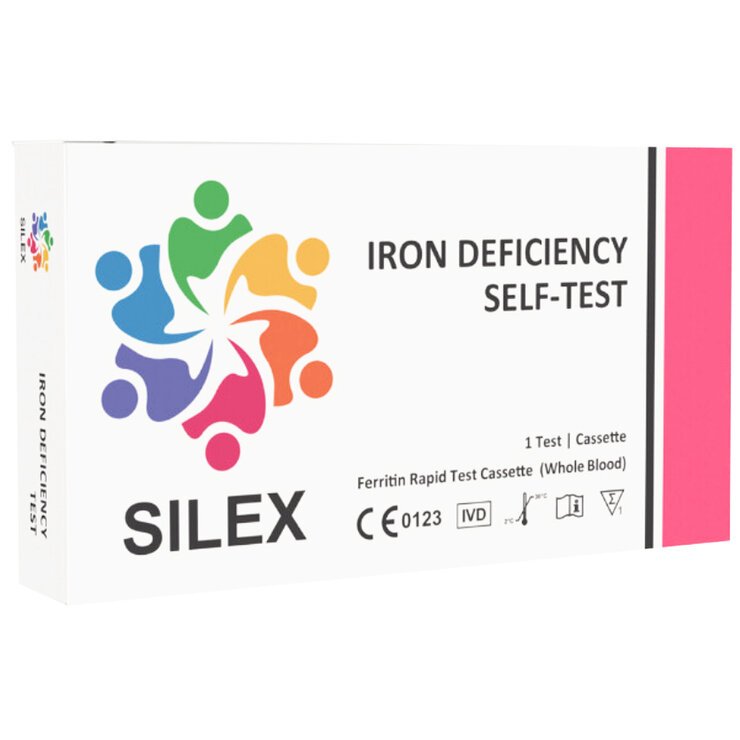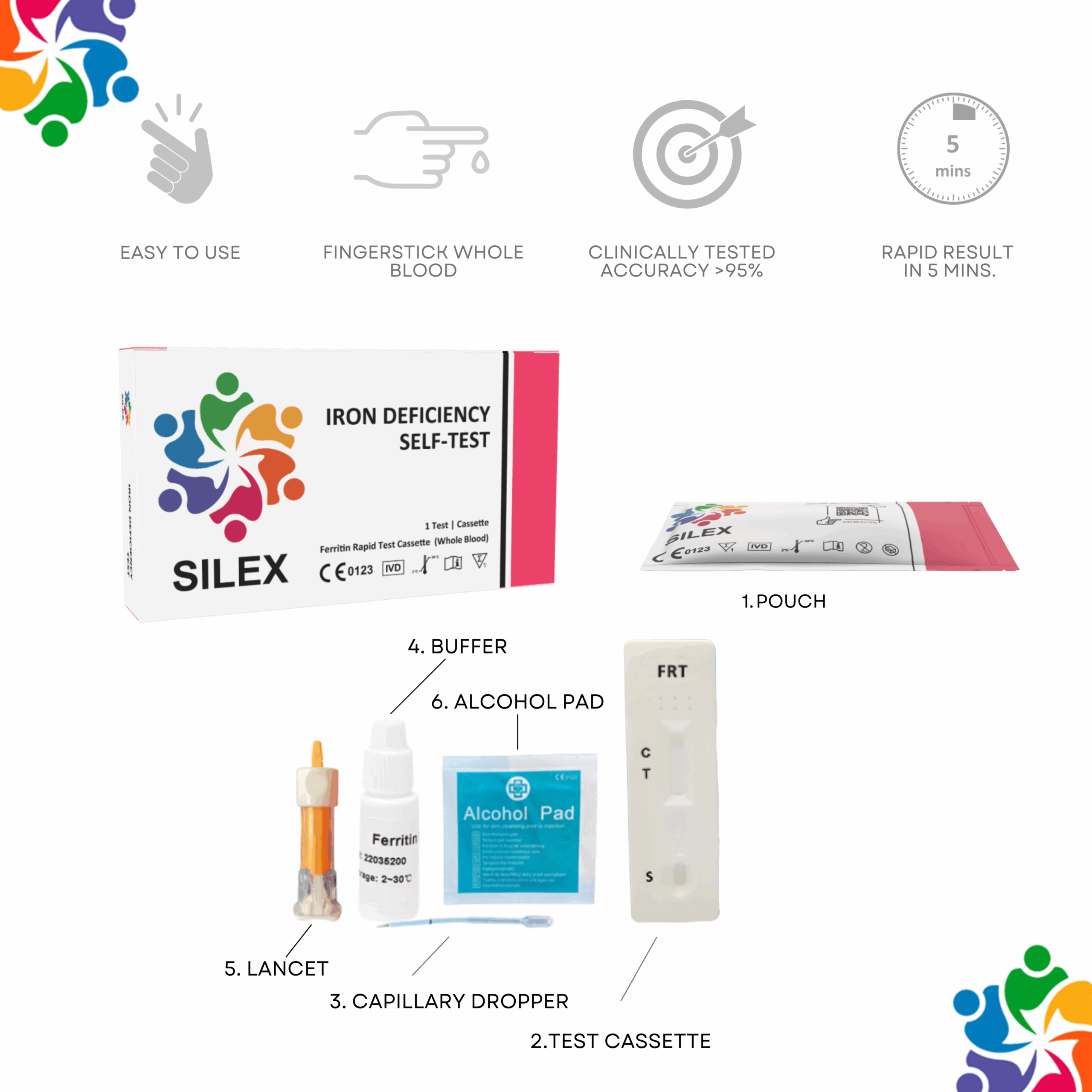Iron Deficiency Self Test Kit (1) – Silex
Silex Iron Deficiency Self-Test Kit is for early screening of Iron Deficiency Anaemia (IDA). The test is used to check your blood iron stores which works by testing a finger prick blood sample to check the ferritin level.
€6.90 ex VAT
Shipping 1-2 Business Days
Trading for over 25 Years
Screen for Iron Deficiency Anaemia (IDA) early with our convenient at-home Iron Deficiency Test. Just a quick finger-prick sample to check your ferritin and iron levels accurately.
Key Benefits:
- Easy to use
- Fingerstick whole blood
- Clinically tested accuracy > 95%
- Rapid result in 5 minutes
Contains:
- 1 x Test Cassette
- 1 x Capillary Dropper
- 1 x Buffer
- 1 x Alcohol Pad
- 1 x Lancet
- 1 x Package Insert
- 1 x Brand Card
Symptoms
Iron is used to make haemoglobin which is found in red blood cells. Haemoglobin is important for carrying oxygen around the body. If you don’t have enough haemoglobin then your body is not going to get the oxygen it requires to function at its best. This low level of haemoglobin/red blood cells is called anaemia.
Iron is also important for the healthy growth of hair, skin and nails.
If you are iron deficient, then you can experience a wide variety of symptoms. These include:
- Tiredness
- Becoming fatigued quickly during exercise.
- Looking pale
- Memory problems
- Brittle hair and nails
- Poor concentration
- Getting out of breath quicker than normal
- Slow wound healing



